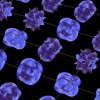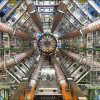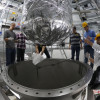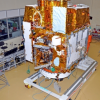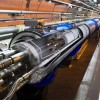We’ve all seen that vast black hole. Its six billion solar masses are so dense no light can escape. It is so far away light from hot gas falling in takes 55 million years to reach us. Well actually, we’ve seen an image. Now that we’ve seen it, what do we know now we didn’t […]
What does that Black Hole image tell us? Much more (and also less) than you may think.


